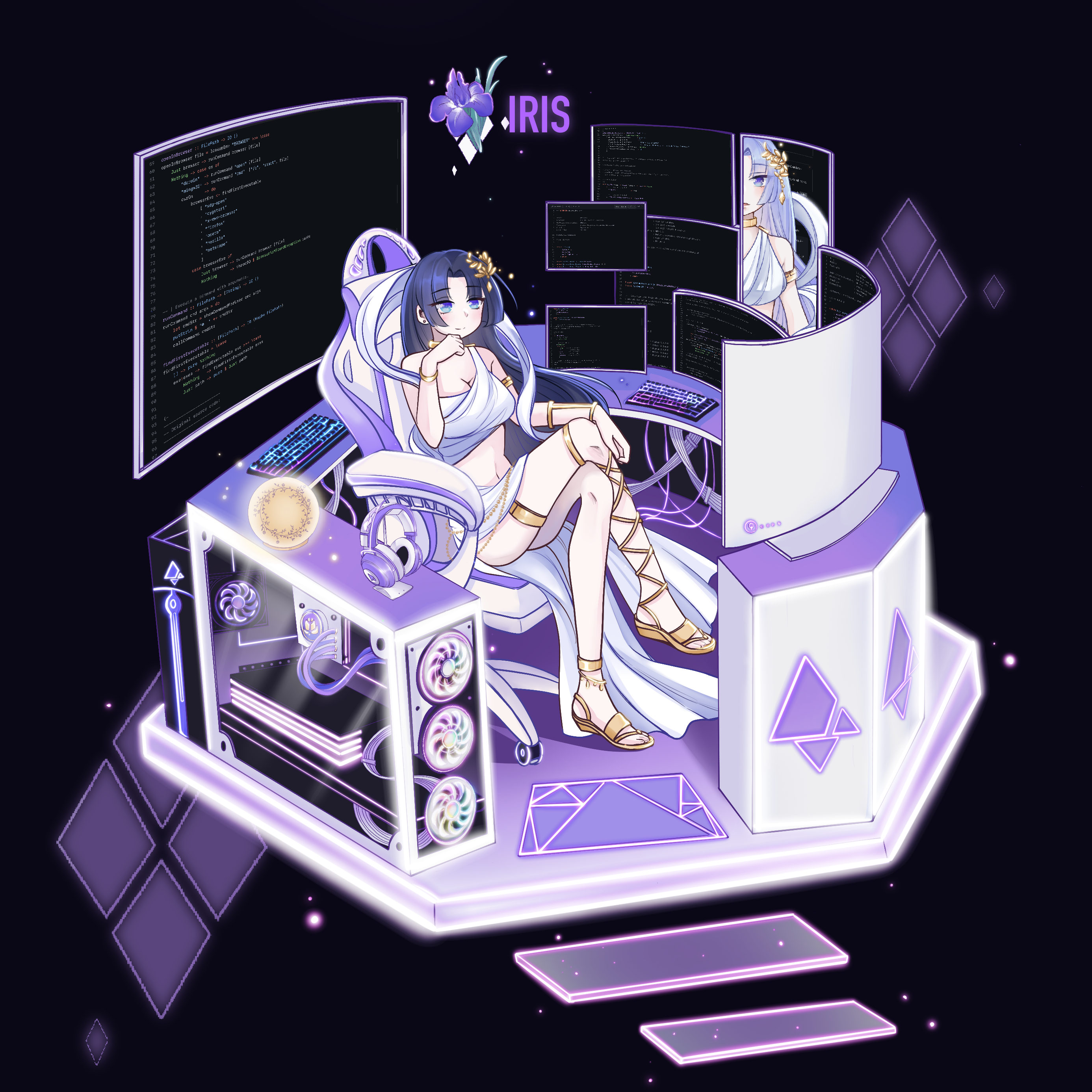iris
Iris is a Haskell framework for building CLI applications that follow Command Line Interface Guidelines.
🌈 Iris (/ˈaɪrɪs/) is a Greek goddess associated with communication, messages, the rainbow, and new endeavors.

ℹ️ DISCLAIMER #1: Currently, Iris is in experimental phase and mostly for early adopters. It may lack documentation or have significant breaking changes. We appreciate anyone's help in improving the documentation! At the same time, the maintainers will strive to provide helpful migration guides.
ℹ️ DISCLAIMER #2: Iris is developed and maintained in free time by volunteers. The development may continue for decades or may stop tomorrow. You can use GitHub Sponsorship to support the development of this project.
Goals
Iris development is guided by the following principles:
-
Support Command Line Interface Guidelines. Features or changes that violate these guidelines are not accepted in the project.
-
Beginner-friendliess. Haskell beginners should be able to build CLI applications with Iris. Hence, the implementation of Iris API that uses less fancy Haskell features are preferred. When the complexity is justified, the cost of introducing this extra complexity should be mitigated by having better documentation.
-
Reasonable batteries-included. Iris is not trying to be minimalistic as possible, it strives to provide out-of-the-box solutions for most common problems. But at the same time, we don't want to impose unnecessary heavy dependencies.
-
Excellent documentation. Iris documentation should be as helpful as possible in using the framework.
NOTE: Currently, Iris may lack documentation but there's an ongoing effort to improve the situation.
Features
CLI apps built with Iris offer the following features for end users:
- Automatic detection of colouring support in the terminal
- Ability to check required external tools if you need e.g.
curlorgit - Support for standard CLI options out-of-the-box:
--help--version--numeric-version: helpful for detecting required tools versions--no-input: for disabling all interactive features
- Utilities to open files in a browser
How to use?
iris is compatible with the following GHC
versions - supported versions
In order to start using iris in your project, you
will need to set it up with these steps:
-
Add the dependency on
irisin your project's.cabalfile. For this, you should modify thebuild-dependssection according to the below section:build-depends: , base ^>= LATEST_SUPPORTED_BASE , iris ^>= LATEST_VERSION
-
To use this package, refer to the below example.
{-# LANGUAGE GeneralizedNewtypeDeriving #-} module Main (main) where import Control.Monad.IO.Class (MonadIO (..)) import qualified Iris newtype App a = App { unApp :: Iris.CliApp () () a } deriving newtype ( Functor , Applicative , Monad , MonadIO ) appSettings :: Iris.CliEnvSettings () () appSettings = Iris.defaultCliEnvSettings { Iris.cliEnvSettingsHeaderDesc = "Iris usage example" , Iris.cliEnvSettingsProgDesc = "A simple 'Hello, world!' utility" } app :: App () app = liftIO $ putStrLn "Hello, world!" main :: IO () main = Iris.runCliApp appSettings $ unApp app
For contributors
Check CONTRIBUTING.md for contributing guidelines.
Development
To build the project and run the tests locally, you can use either
cabal or stack.
See the First time section if you don't have Haskell development environment locally.
Cabal
Build the project:
cabal build allRun all unit tests:
cabal test --enable-tests --test-show-details=directStack
Build the project:
stack build --test --no-run-testsRun all unit tests:
stack testFirst time
If this is your first time dealing with Haskell tooling, we recommend using GHCup.
During the installation, GHCup will suggest you installing all the necessary tools. If you have GHCup installed but miss some of the tooling for some reason, type the following commands in the terminal:
ghcup install ghc 8.10.7
ghcup set ghc 8.10.7
ghcup install cabal 3.6.2.0If you are using Linux or macOS, you may find
ghcup tuicommand a more attractive option.


